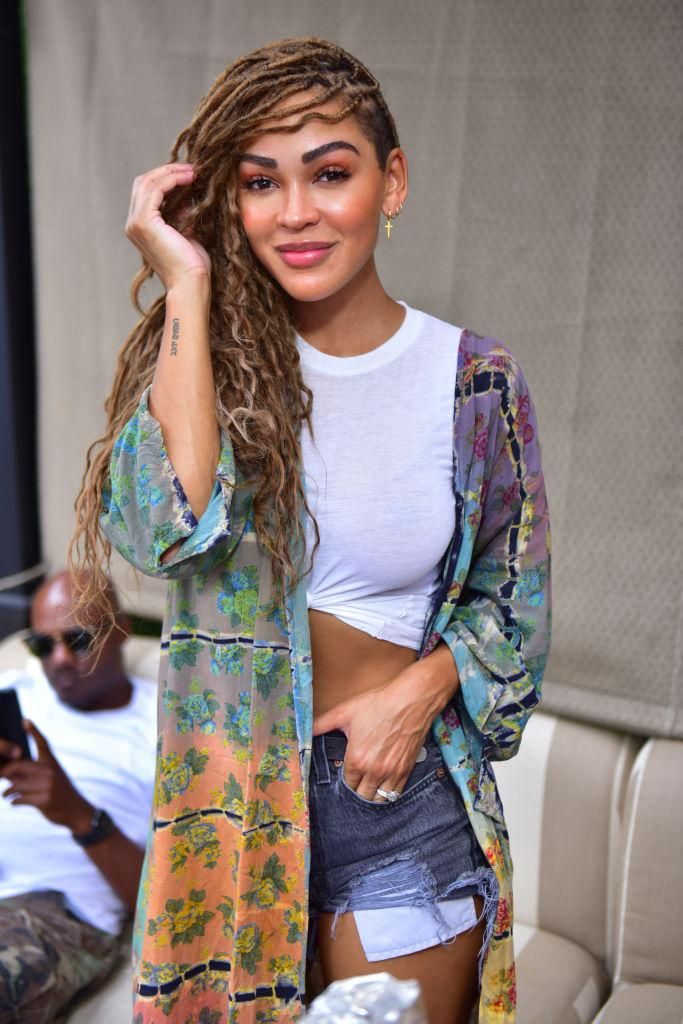Almost 10 years ago, Meagan Good’s routine trip to her gynecologist turned out to be a scary one and it caused her to re-evaluate her health. The Harlem star spoke to E! News about the terrifying “c” word and what she's doing to bring awareness around the issue for Black women.
Meagan teamed up with FORCE, SHARE, Black Health Matters, and Eisai Inc. on the Spot Her campaign to educate Black women about endometrial cancer. “It's just about being proactive instead of reactive and getting in front of it, instead of reacting to something," she said. "I wasn't taking care of myself regularly.”
During her doctor’s visit, the gynecologist found abnormal cells in her uterus with concerns of it being uterine cancer. But luckily it wasn’t cancer and she had the cells removed after her biopsy. Now at 41, Meagan is using her platform through the campaign to help other women avoid having the same health scare she experienced or at the very least get ahead of it. “Part of it is when your life is aligning with the things that God's really put in your heart and who you really are as a human being,” she said.
“When you're putting those things back into the world, I think things come to you. And this for me is super important, because it is a conversation that we're not having and especially within the Black community. When you look at the statistics, it's only 53 percent of Black women who are diagnosed early. That's terrifying. For me, I just want to be a resource and a help.”
There are health disparities in the U.S. between Black women and white women due to discrimination, lack of access to proper health care, and other factors. According to the American Cancer Society, a third of Black women have reported experiencing racial discrimination by a health provider and Black people overall have the “highest death rate and shortest survival rate of any racial/ethnic group for most cancers.”
But even with the odds stacked against us, Meagan believes we must be our own biggest advocates no matter how scary it is.
“You only have one life and we have to be our biggest advocates. If we're not going to look out for ourselves and take care of ourselves, who's going to do it for us? It may be an uncomfortable conversation, it might be even a scary conversation. You've got to educate, you've got to know what questions to ask and it's up to us to advocate for ourselves. The only way to do that is to have the information.”
Let’s make things inbox official! Sign up for the xoNecole newsletter for daily love, wellness, career, and exclusive content delivered straight to your inbox.
Featured image by Prince Williams/Wireimage via Getty Images
